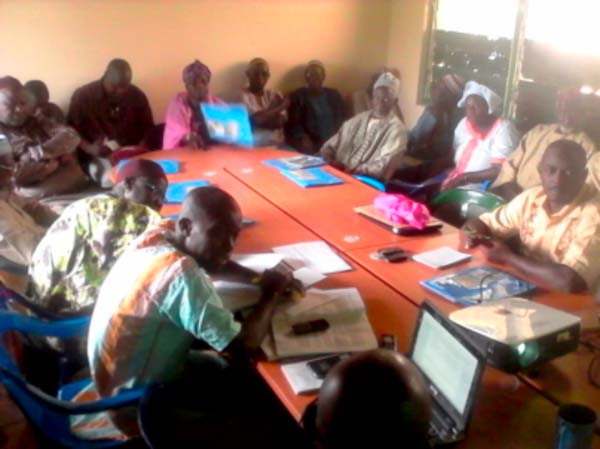
The participants were also educated on the key findings of the 2013 Demographic and Health Survey, and the development and health implications of female genital cutting and other harmful traditional practices.The forum was held in Kerewan in the North Bank Region.
Saikou JK Trawally, executive director of NPS, said the UNFPA (UN Population Fund) and The Gambia government attached great importance to building people’s awareness on population-related issues, to enhance national economic growth.
He said the objectives of the Gambia National Population Policy include ensuring that population issues are systematically integrated into all aspects of development planning and programming at all levels.
The policy also hopes to enhance integrated rural and urban development, in order to improve rural living conditions and curb rural-urban migration.
Mr Trawally noted that in terms of population, the greatest challenges of The Gambia remain a high population growth, very youthful population, high urbanisation rate, high population density and high poverty rate.
As a result, meeting the reproductive health, population and development challenges in The Gambia requires the concerted efforts of all stakeholders, and also needs a sustainable platform for long-term success.
Ebrima Hydara, senior community health nurse tutor at Farafenni health directorate, said FGM/C puts girls at risk of complications at the time of the procedure.
Presenting a paper on the medical aspects of female circumcision, Mr Hydara said the likelihood of transmission of the AIDS virus in the process of FGM/C has been added to the long list of complications associated with it.
Deputy Governor Mustapha Saidy of NBR commended NPS for their foresight, while urging the regional population task force to be thorough in raising public awareness on population issues.
Ndey Fatou Jobe-Sanyang, deputy Director of the Women’s Bureau, said the government is committed to equal treatment before the law and at work places at all times.
She noted that the government has manifested political will in the protection and promotion of women, and a clear testimony of this was the enactment of the Women’s Act, Sexual Offences Act, and Domestic Violence Act.
Mrs Jobe-Sanyang called on institutions and NGOs to mainstream gender-related issues in all policies and programmes.
She said inequality and discrimination based on gender is an impediment to the achievement of women’s rights, and this was recognised in the Millennium Declaration as a significant factor undermining progress in many contexts.
It was this recognition that led to the inclusion of a stand-alone goal on gender equality and women’s empowerment (MDG3) and the integration of gender.
The women’s rights activist said the low numbers of women in public decision-making places such as the National Assembly and local councils needed to be remedied.
She said remedying this would ensure that women’s voices feature prominently in democratic institutions, during public and private deliberations.
Momodou Fatajo, senior statistician on Population and Demographic Statistics at the Gambia Bureau of Statistics, said the Demographic Dividend Survey, 2013 shows improvements in health status, especially children and women’s health, as a result of the decrease in the number of children born to each family.
He said mortality reduction requires not just strengthening of the health system, but also paying deliberate attention to issues of sexual and reproductive health and rights of all population segments.


